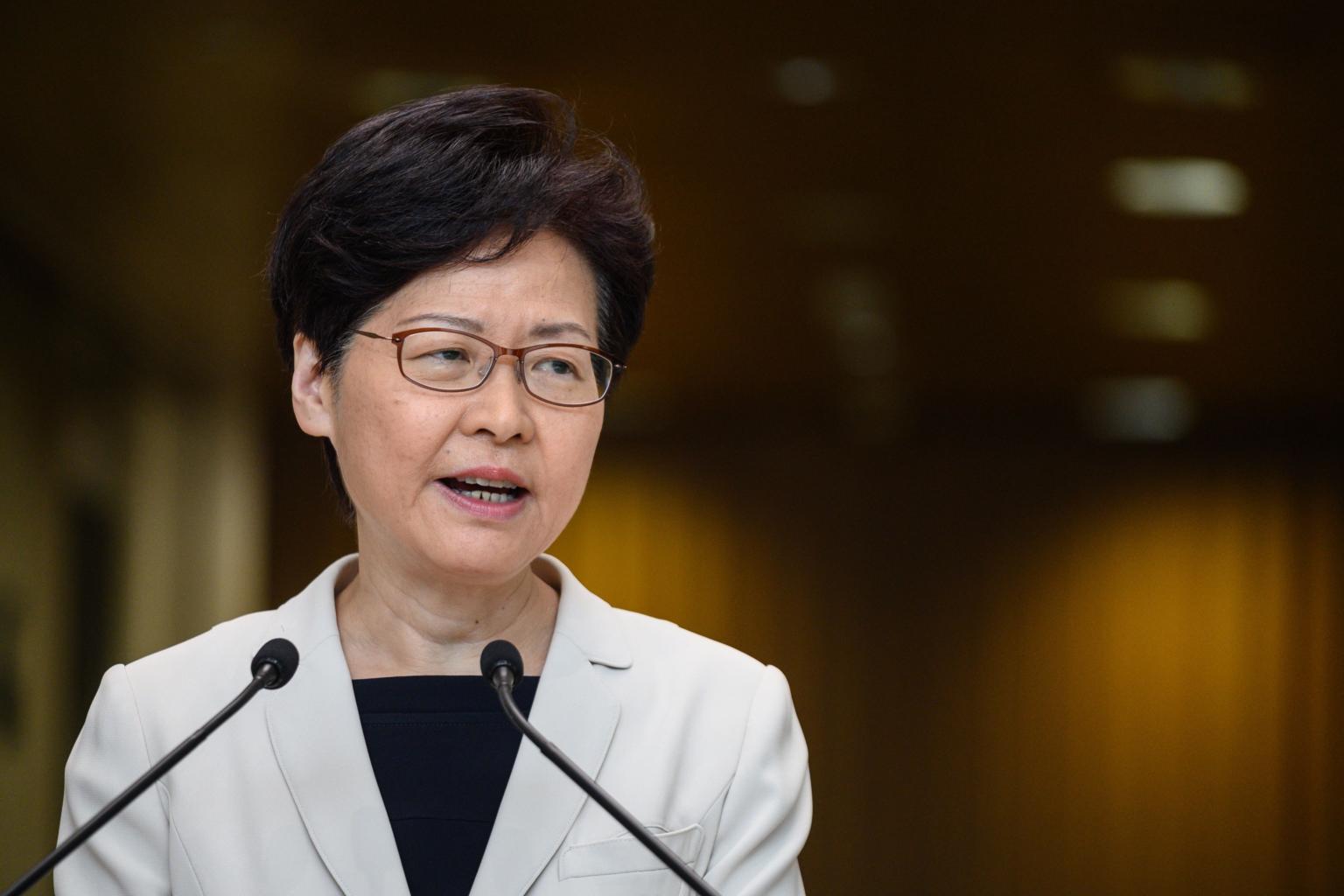Hong Kong leader Carrie Lam says escalation of violence becoming more serious
Sign up now: Get insights on Asia's fast-moving developments

Hong Kong leader Carrie Lam rejected calls that she is not listening to the people, saying that she had moved to suspend the contentious extradition Bill soon after protests escalated in June.
PHOTO: AFP
HONG KONG - Hong Kong leader Carrie Lam said on Tuesday (Aug 27) the escalation of violence in anti-government protests that have rocked the Asian financial centre for three months is becoming more serious.
Mrs Lam was speaking in public for the first time since anti-government demonstrations escalated on Sunday, when police fired water cannon and volleys of tear gas in running battles with protesters who threw bricks and petrol bombs.
"Protesters are not just throwing things, but things that could seriously hurt, including flammable petrol bombs, and have destroyed shops in the affected district," she said.
"I must reiterate, violence cannot resolve anything. Violence should not be normalised or glorified."
The Chinese-ruled city is grappling with its biggest political crisis since its handover to Beijing in 1997 and Communist Party authorities have sent a clear warning that forceful intervention is possible to quell the unrest.
But Mrs Lam insisted that the police complaints commission is sufficient to look into the incident, ruling out setting up an independent commission, one of the protesters' main demands.
She also rejected calls that she is not listening to the people, saying that she had moved to suspend the contentious extradition Bill soon after protests escalated in June.
"In the last two months, I've repeatedly given a reply. It's not about not replying, it's about not accepting (the response)," she said.
The government said on Monday illegal violence was pushing Hong Kong to the brink of great danger after weekend clashes that included the first gun-shot and the arrest of 86 people, the youngest just 12.
The protests escalated in mid-June over a now-suspended extradition Bill that would have allowed Hong Kong people to be sent to mainland China for trial in courts controlled by the Communist Party.
But the demonstrations have evolved over 12 straight weeks into a broad demand for greater democracy under the "one country, two systems" formula following the handover to China by colonial ruler Britain in 1997. Many Hong Kong residents believe Beijing is eroding the city's autonomy and their rights.
With additional reports from Reuters


